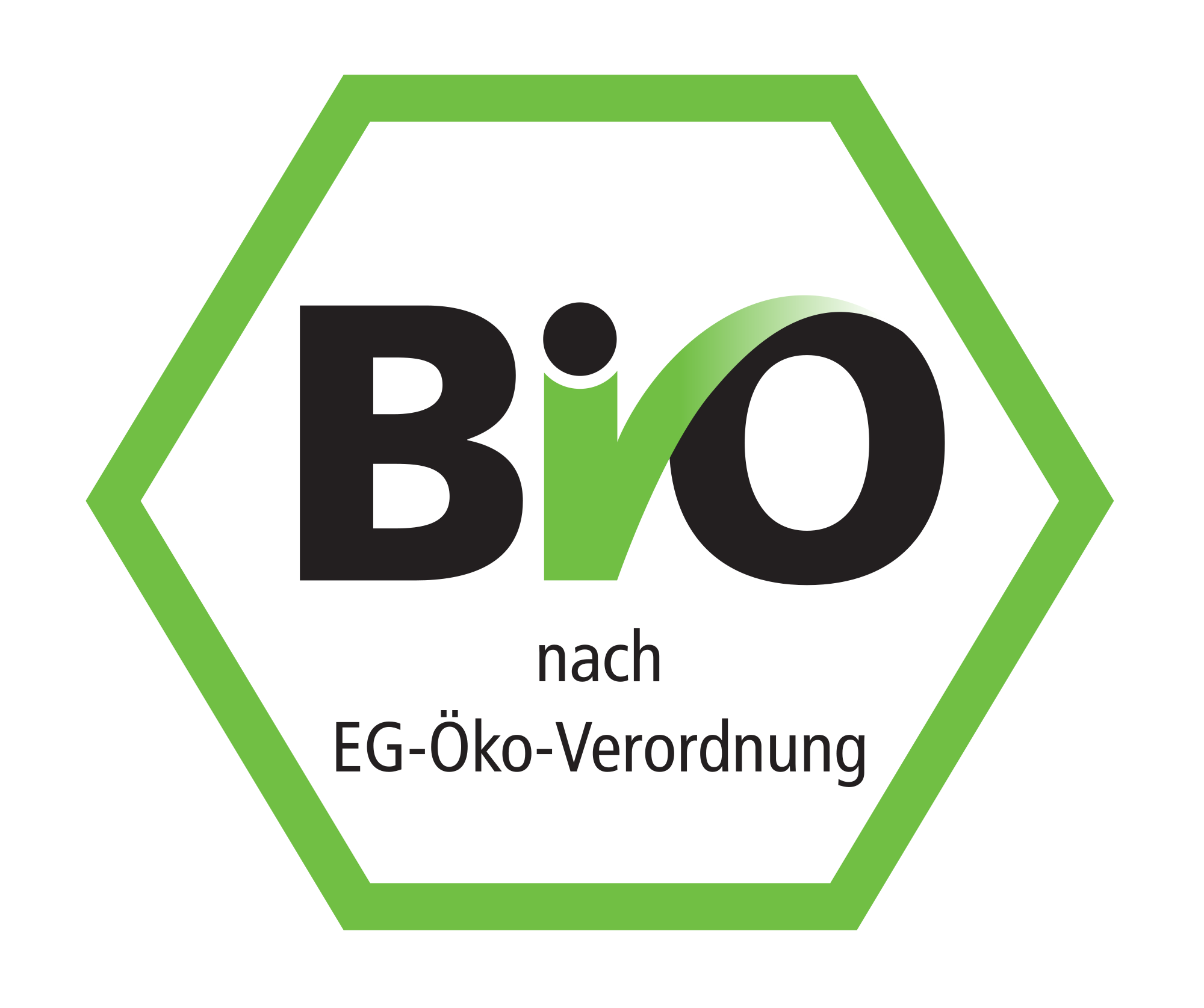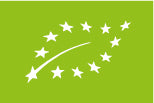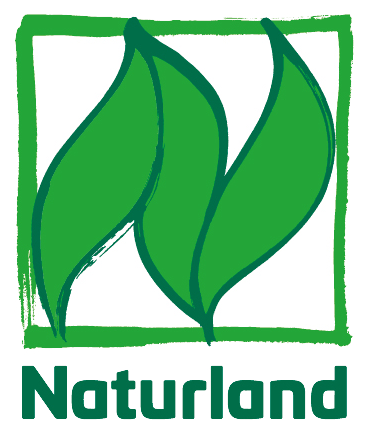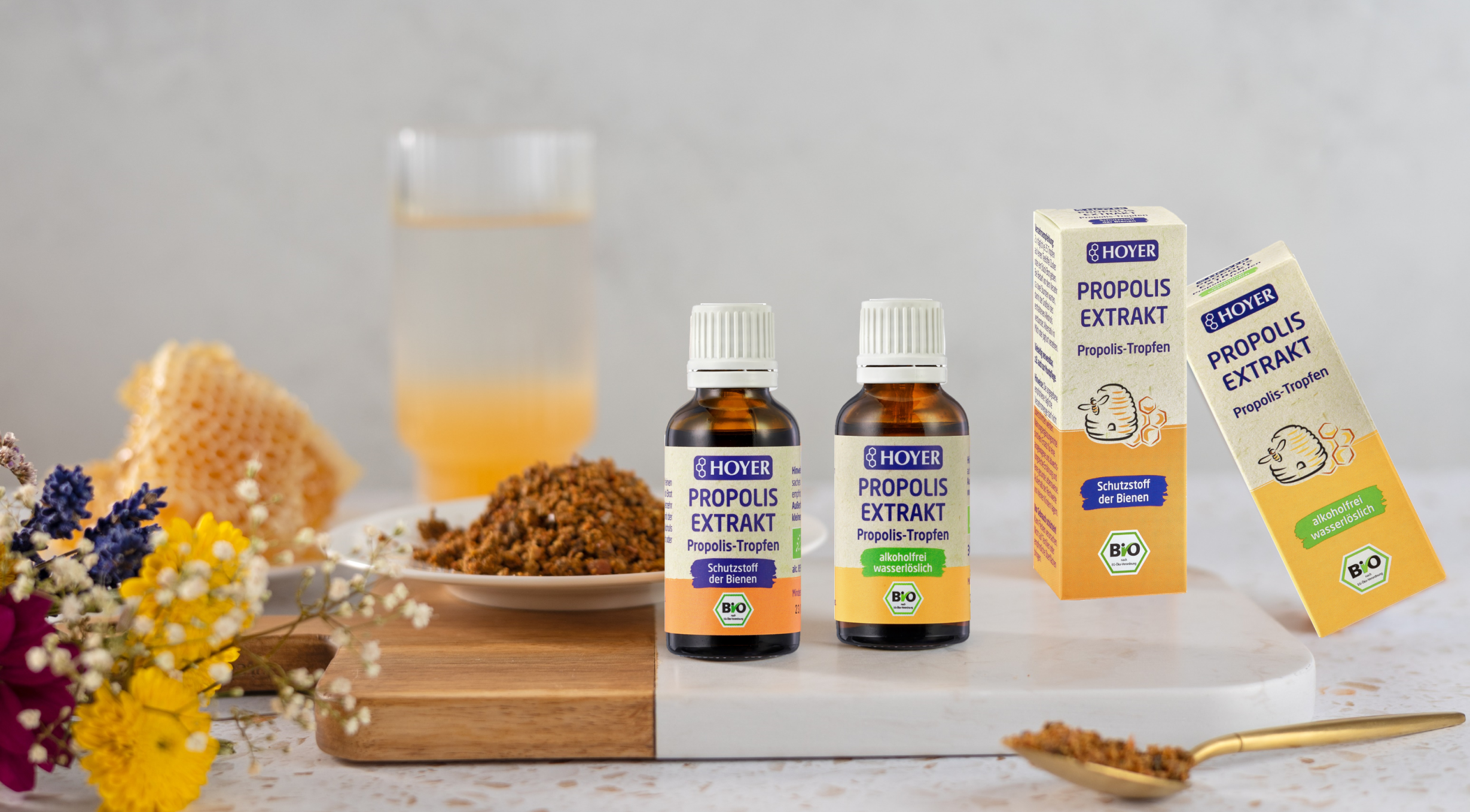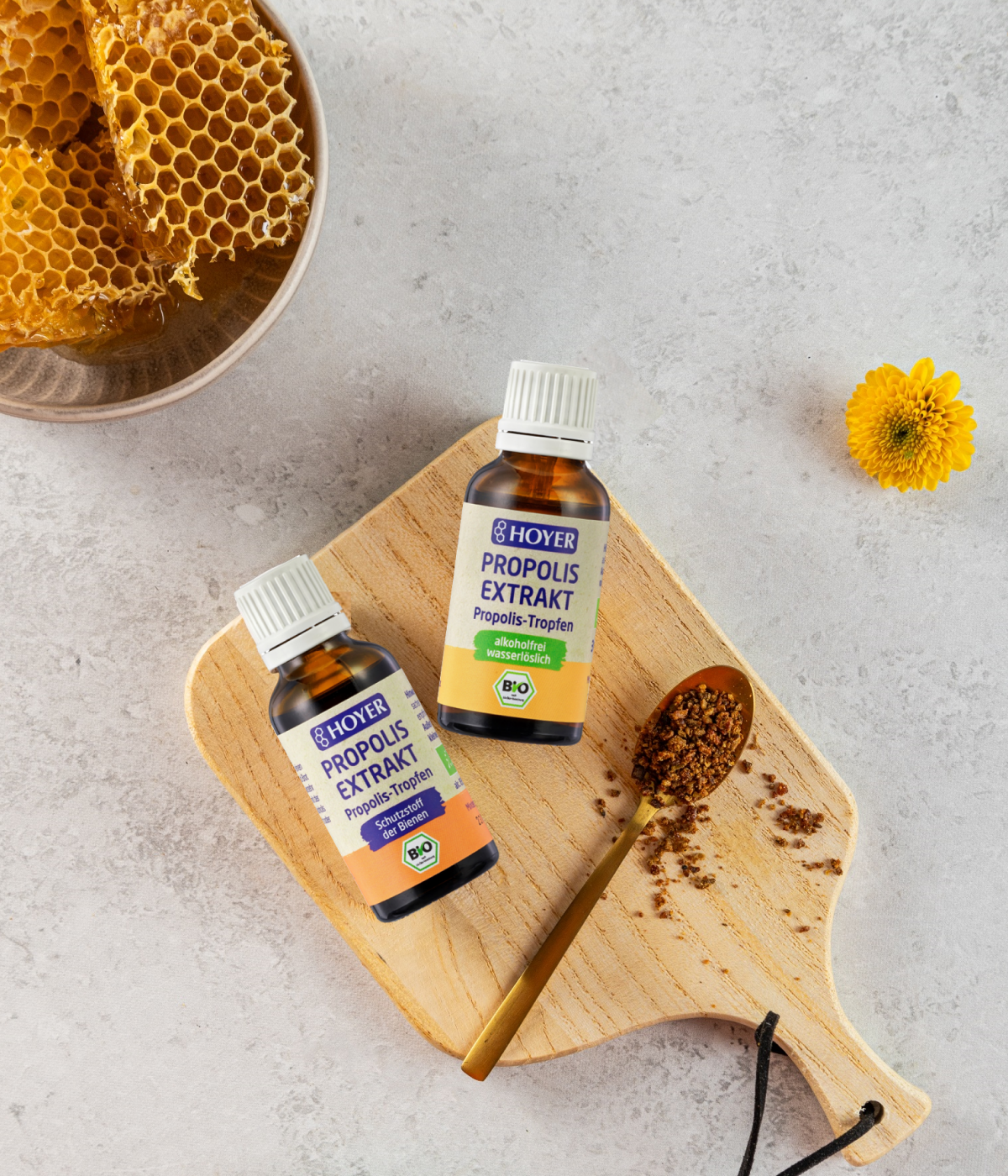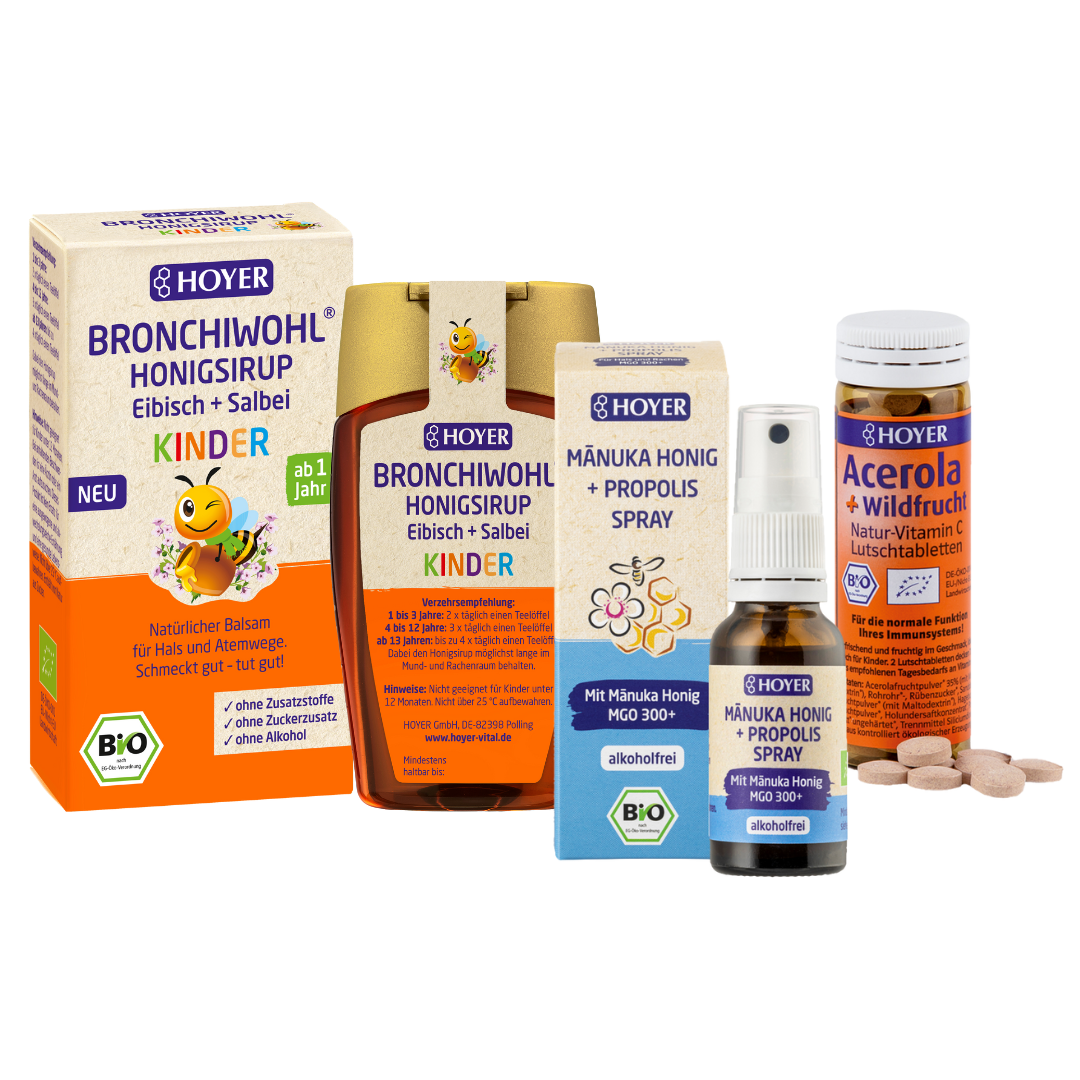10 products
-
Organic propolis extract alcohol-free
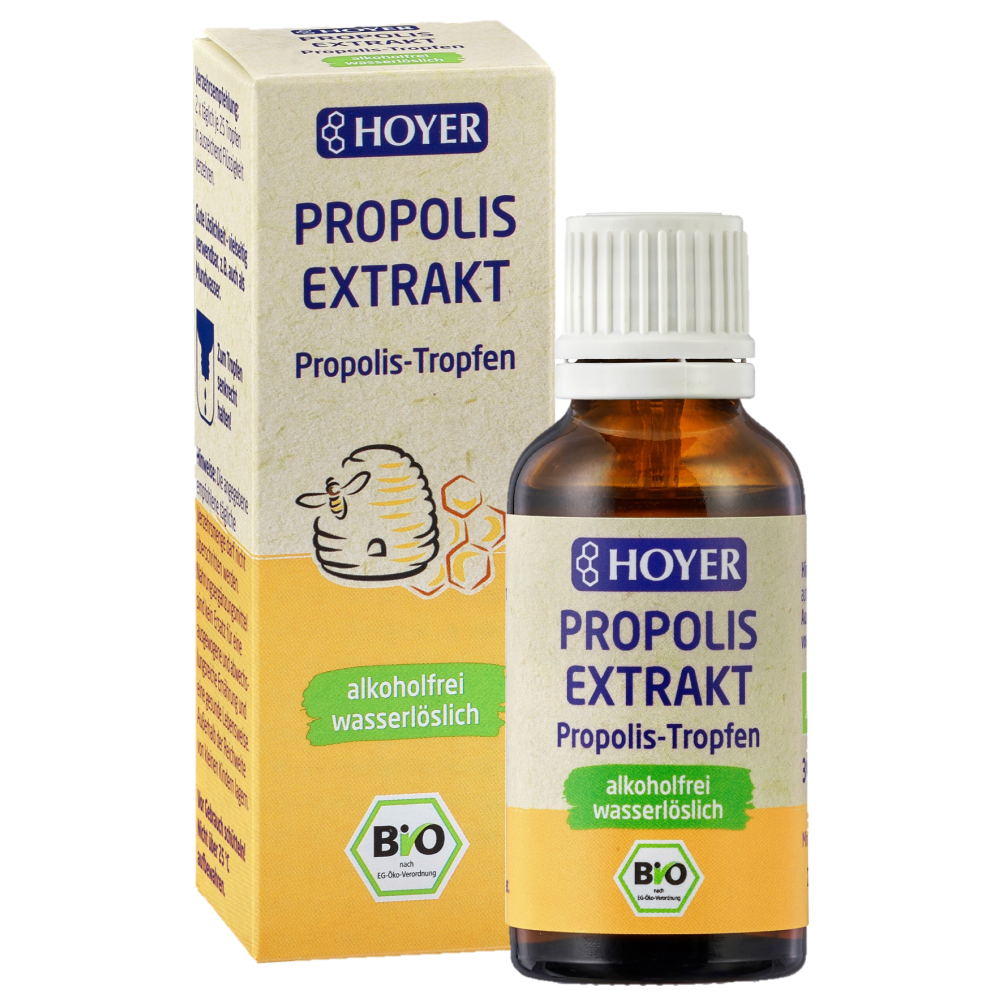
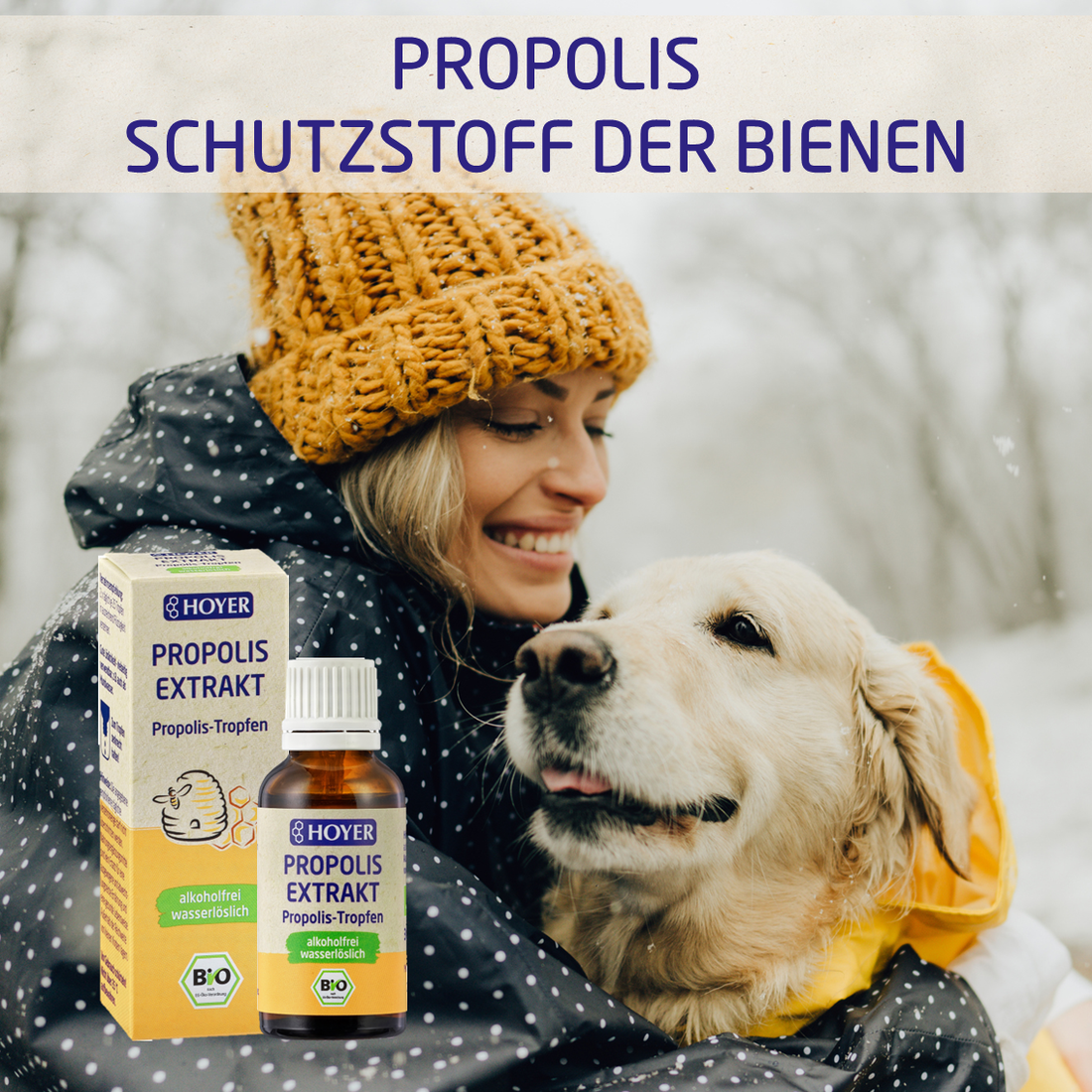 Vendor:Organic propolis extract alcohol-freeHoyer
Vendor:Organic propolis extract alcohol-freeHoyer- Regular price
-
€9,99 - Regular price
-
- Sale price
-
€9,99 - Unit price
-
€333,00 per l
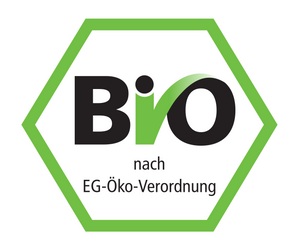
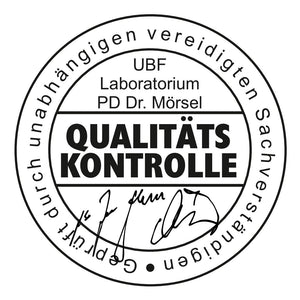
Quick view
-
Organic propolis extract
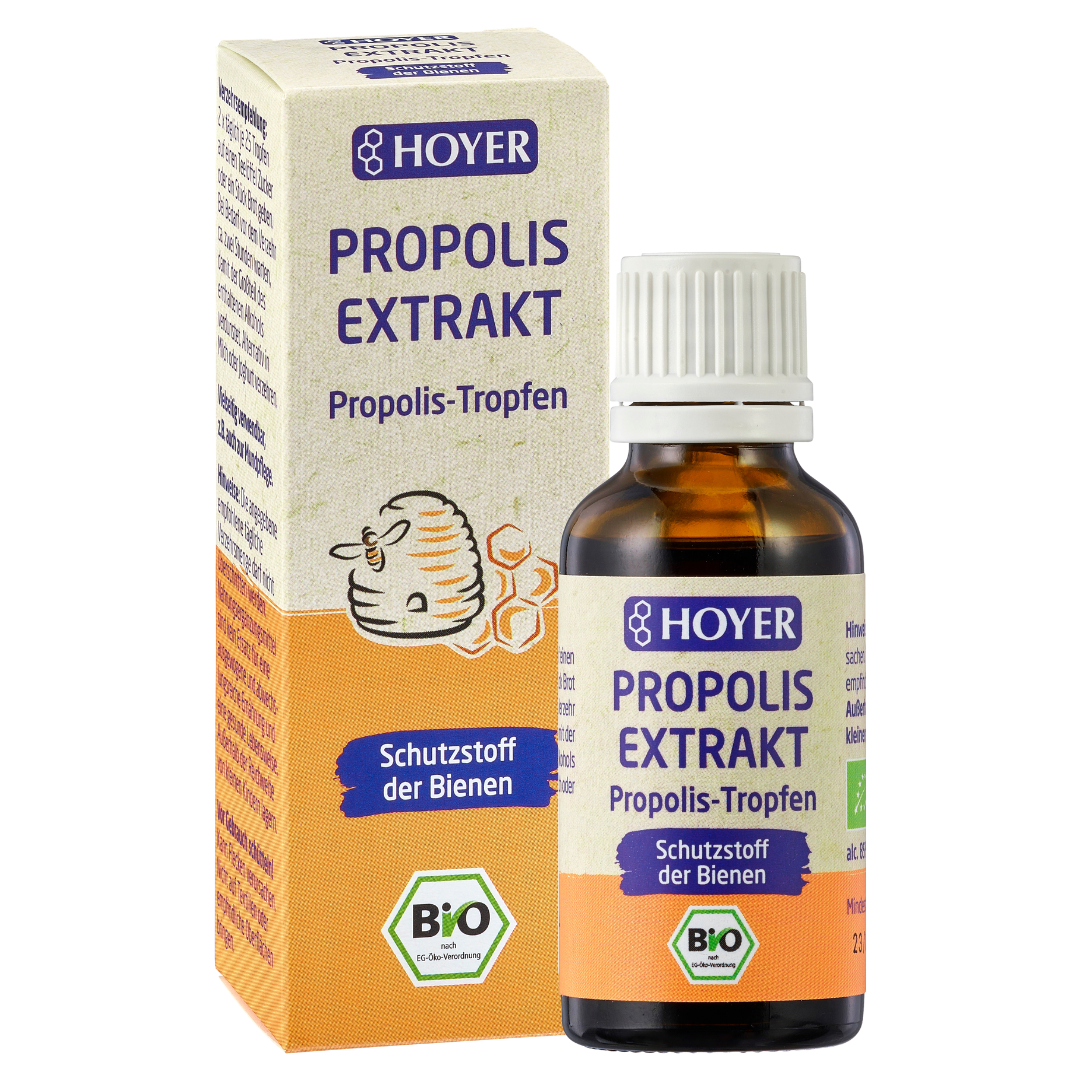
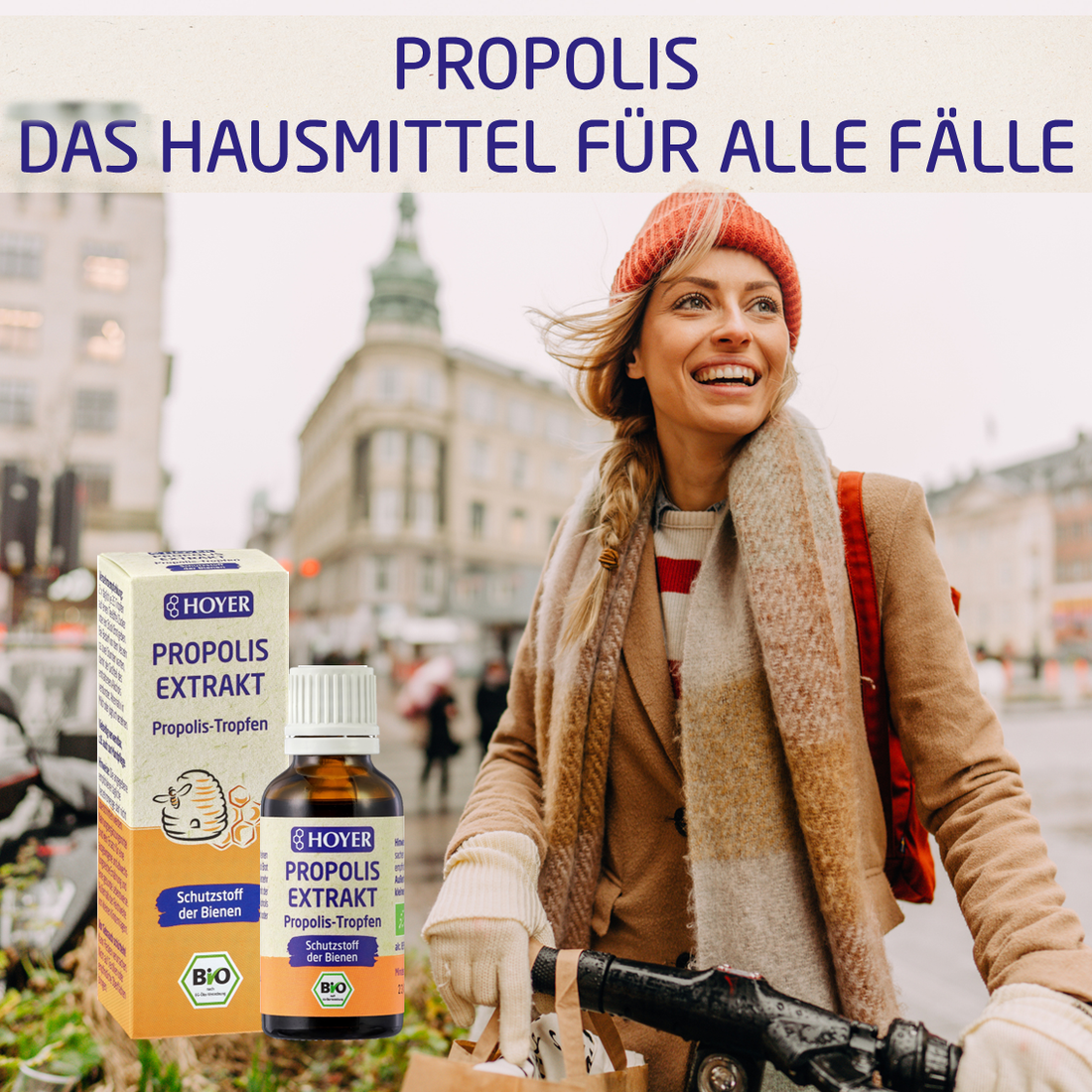 Vendor:Organic propolis extractHoyer
Vendor:Organic propolis extractHoyer- Regular price
-
€9,99 - Regular price
-
- Sale price
-
€9,99 - Unit price
-
€333,00 per l


Quick view
-
Manuka Oxymel Immun

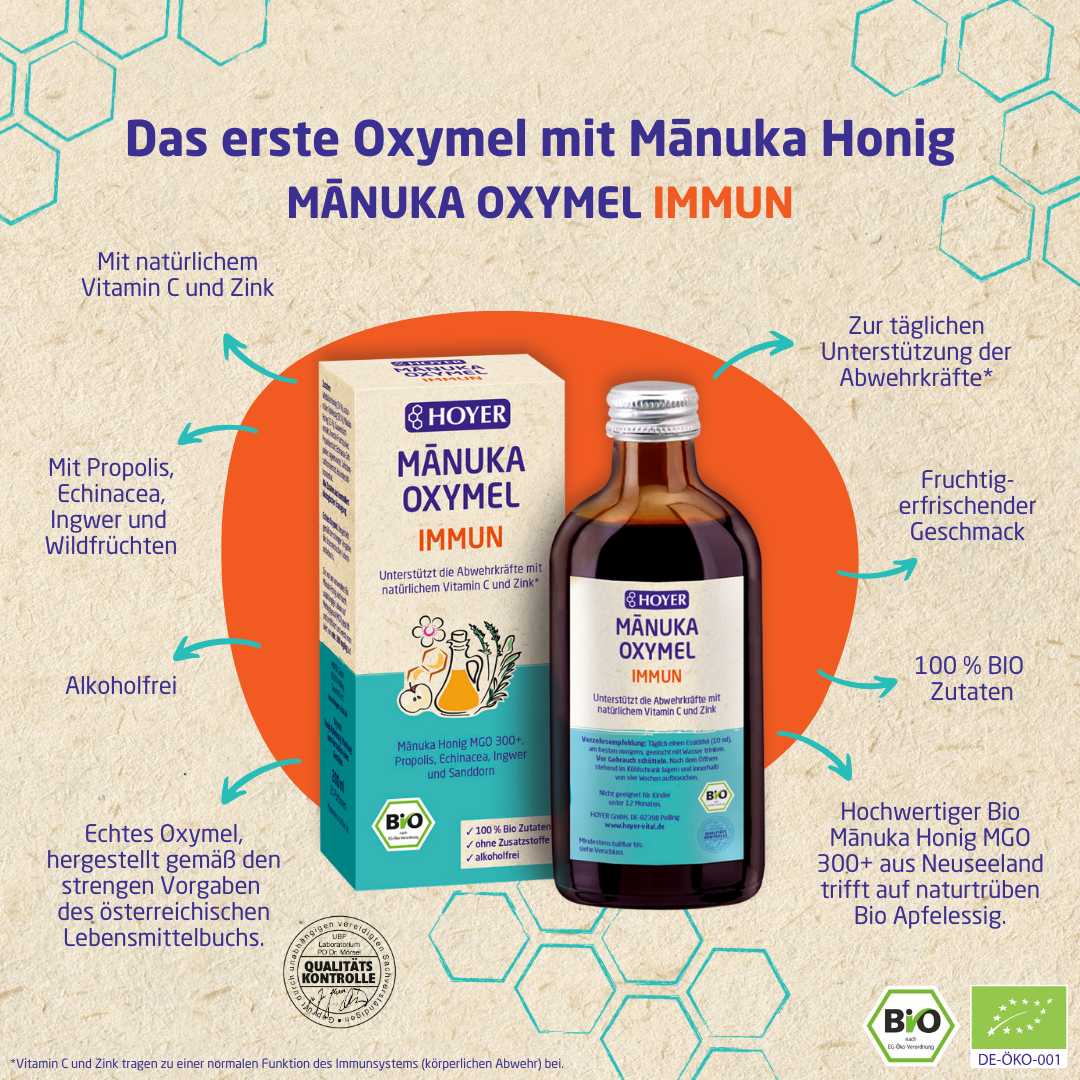 Vendor:Manuka Oxymel ImmunHoyer
Vendor:Manuka Oxymel ImmunHoyer- Regular price
-
€18,90 - Regular price
-
- Sale price
-
€18,90 - Unit price
-
€94,50 per l


Quick view
-
Manuka honey + propolis spray alcohol-free
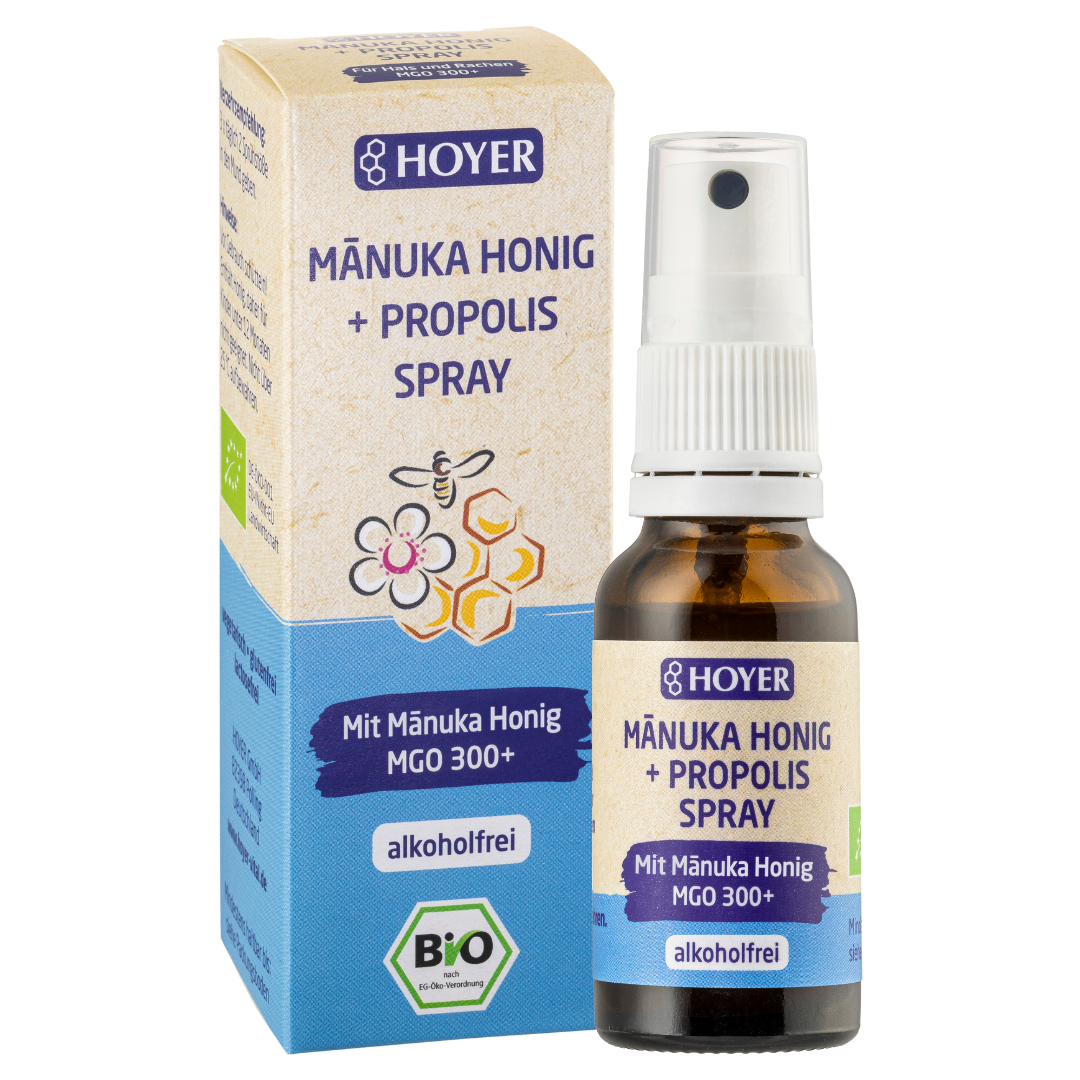
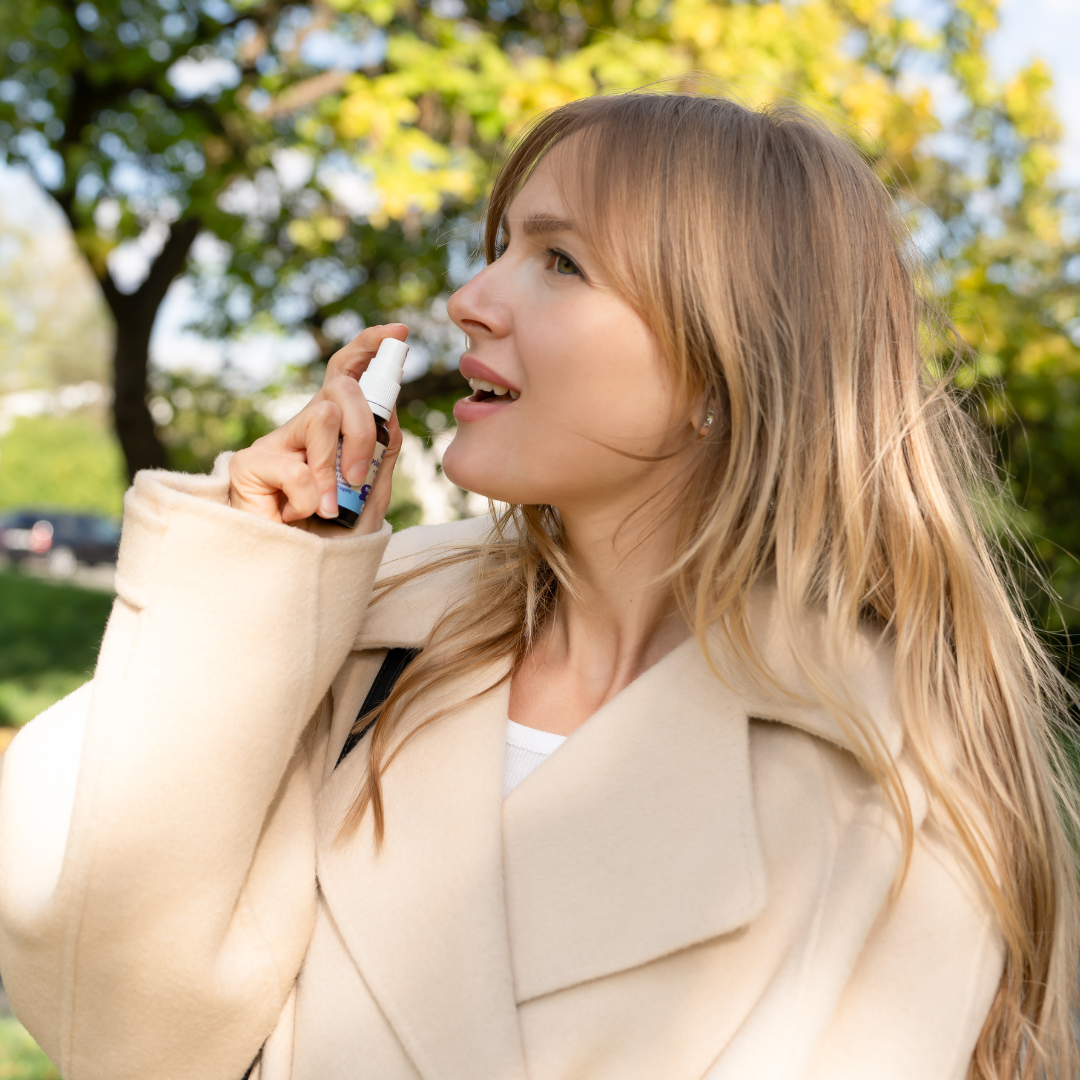 Vendor:Manuka honey + propolis spray alcohol-freeHoyer
Vendor:Manuka honey + propolis spray alcohol-freeHoyer- Regular price
-
€9,99 - Regular price
-
- Sale price
-
€9,99 - Unit price
-
€499,50 per l


Quick view
-
Propolis + sage lozenges
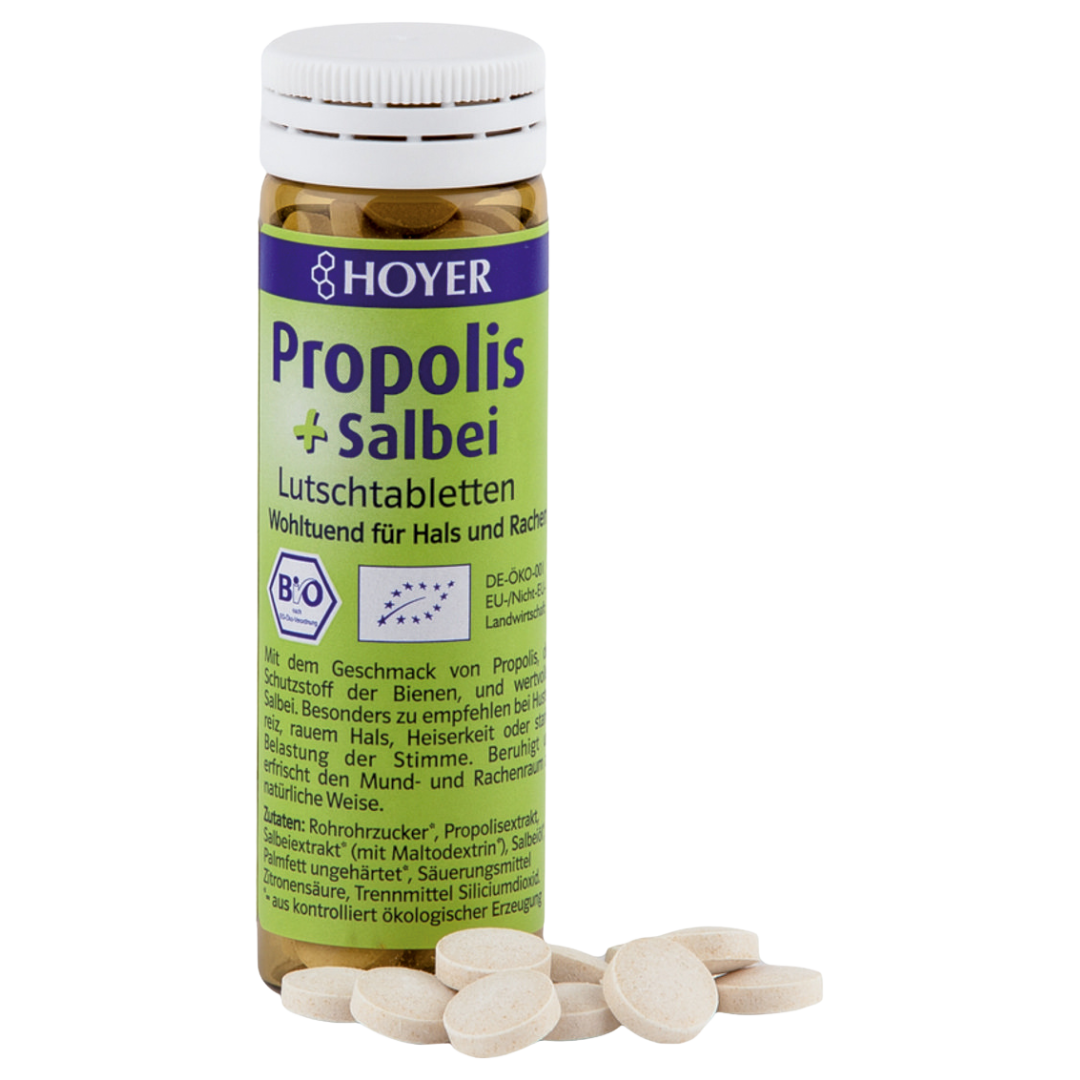
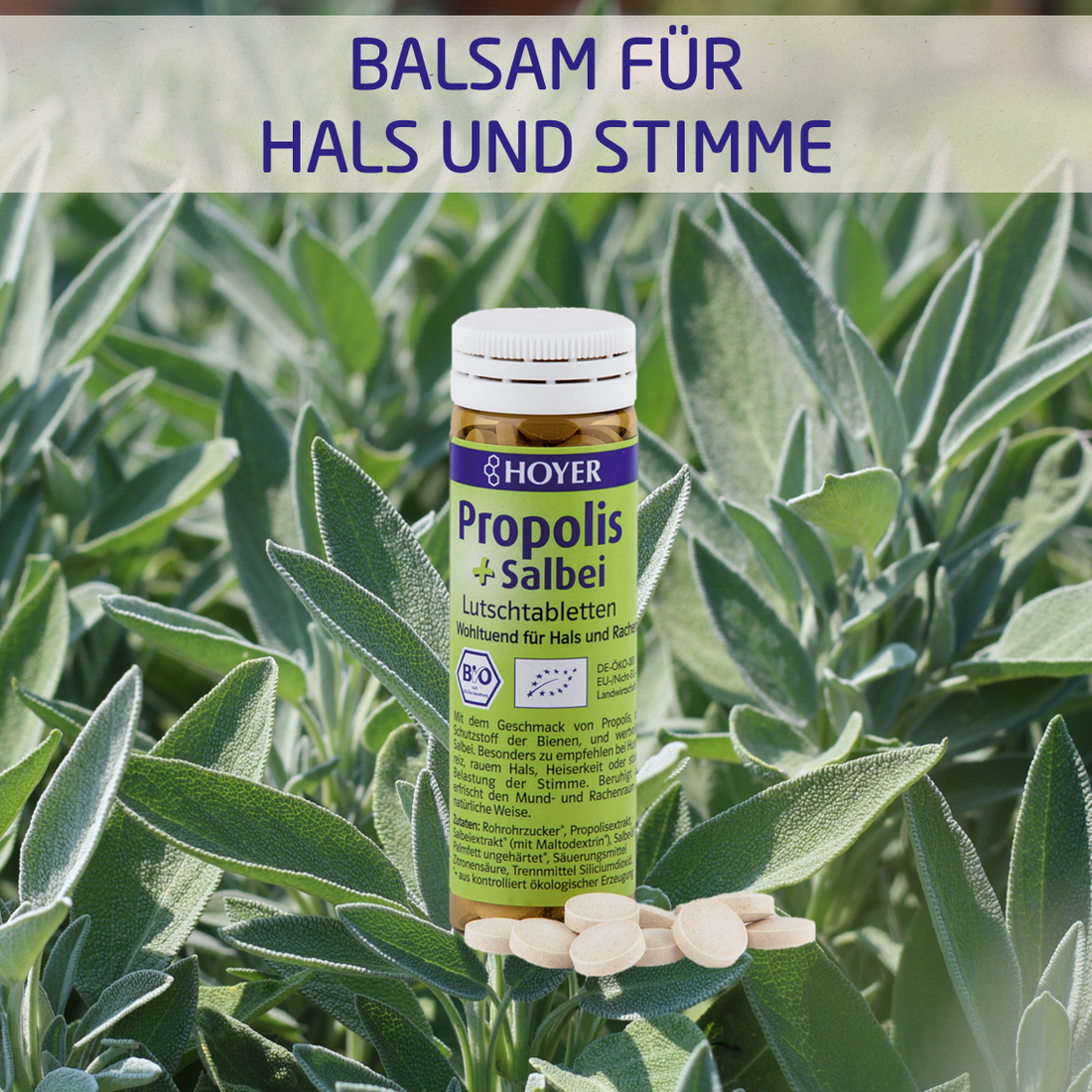 Vendor:Propolis + sage lozengesHoyer
Vendor:Propolis + sage lozengesHoyer- Regular price
-
€4,49 - Regular price
-
- Sale price
-
€4,49 - Unit price
-
€149,67 per kg


Quick view
-
Propolis forte capsules
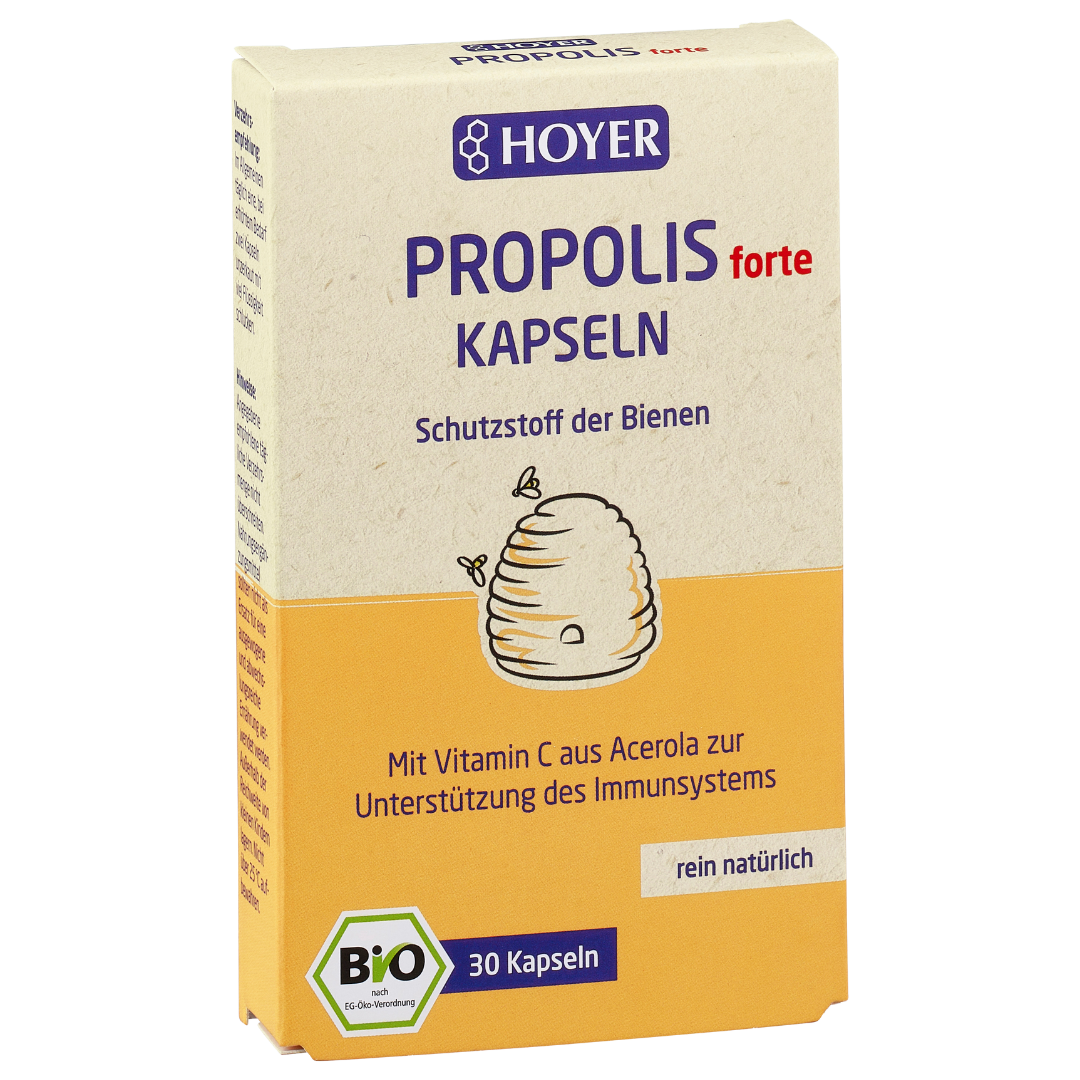
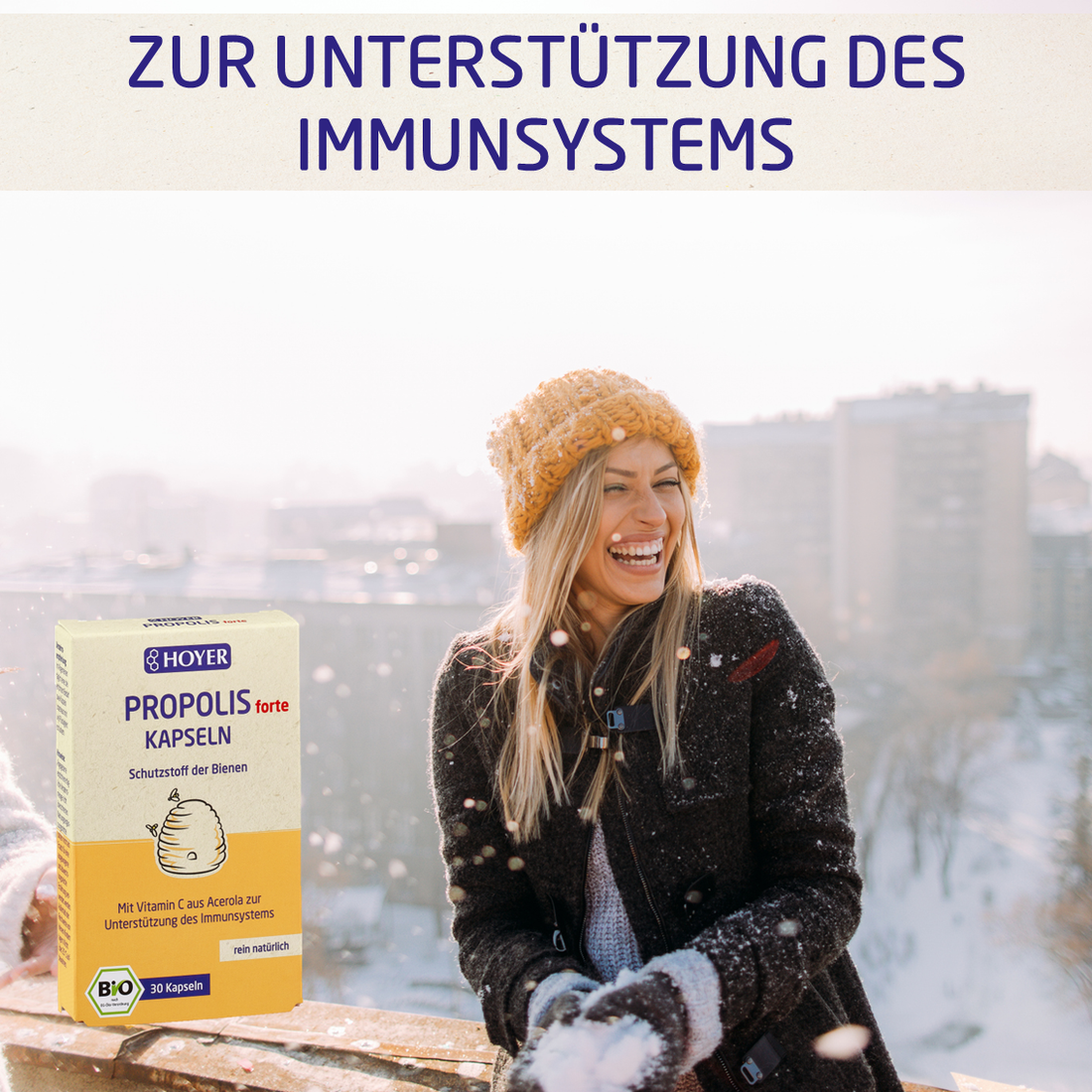 Vendor:Propolis forte capsulesHoyer
Vendor:Propolis forte capsulesHoyer- Regular price
-
€10,95 - Regular price
-
- Sale price
-
€10,95 - Unit price
-
€969,03 per kg


Quick view
-
Propolis in honey
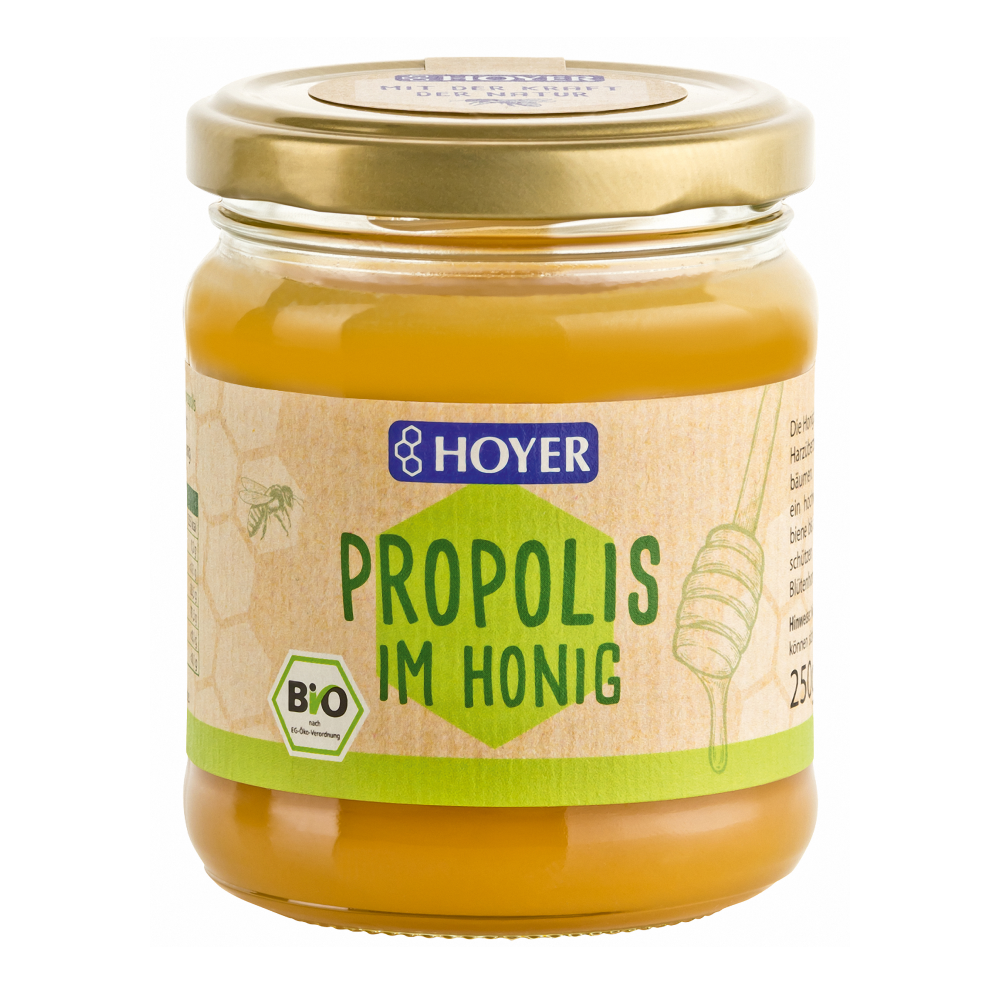
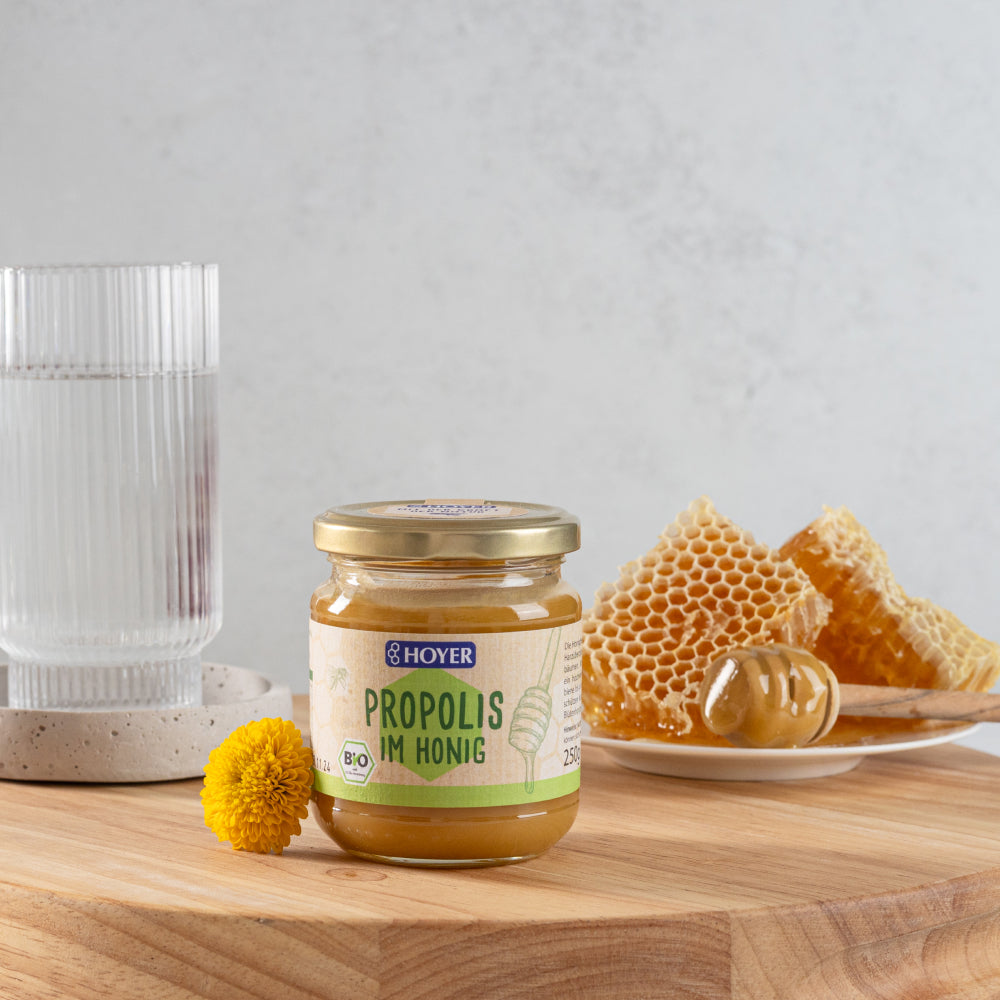 Vendor:Propolis in honeyHoyer
Vendor:Propolis in honeyHoyer- Regular price
-
€5,99 - Regular price
-
- Sale price
-
€5,99 - Unit price
-
€23,96 per kg

Quick view
-
Bad weather drink
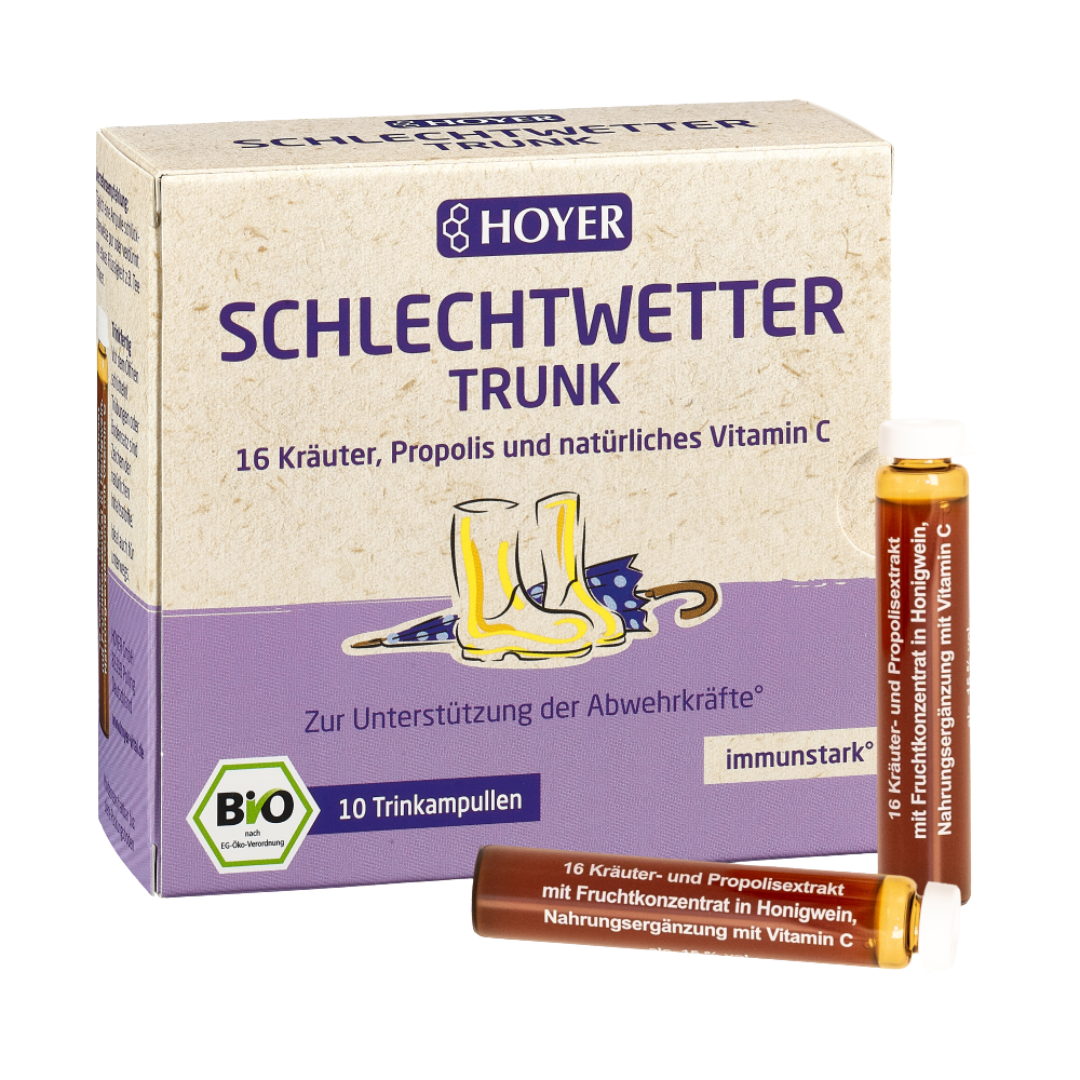
 Vendor:Bad weather drinkHoyer
Vendor:Bad weather drinkHoyer- Regular price
-
€9,79 - Regular price
-
- Sale price
-
€9,79 - Unit price
-
€97,90 per l


Quick view
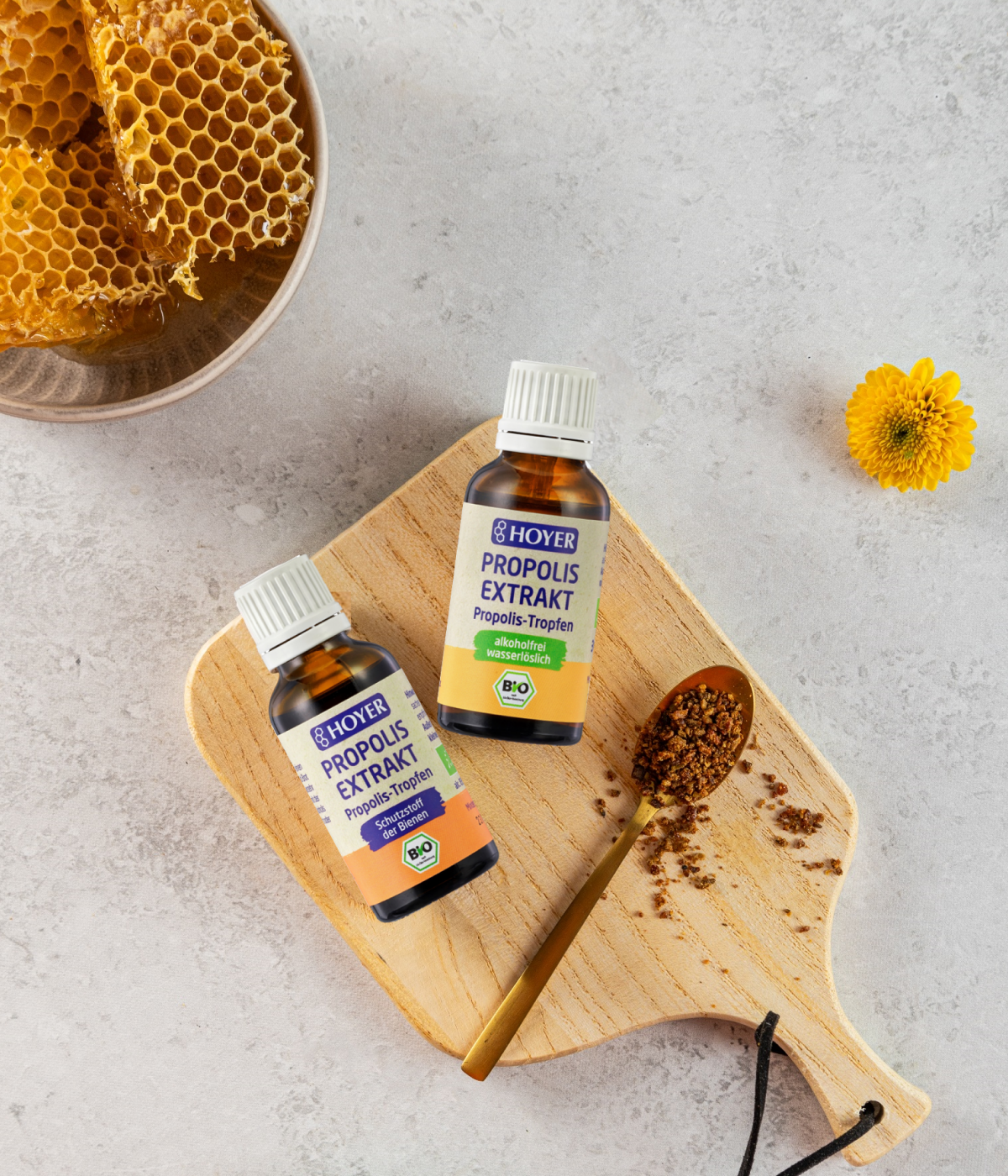
Protective material of bees
FAQ - Frequently asked questions about propolis
Here you will find the answers to frequently asked questions about propolis.
What is propolis?
Propolis is the putty resin of bees. It is used by the bees in the beehive to protect against fungi, viruses and bacteria.
How is propolis made?
Our honey bees not only collect nectar and pollen, but also resins from various plants and trees. They process these with their own secretions to produce the unique natural product propolis.
How do bees use propolis?
Propolis is often referred to as the "protective substance of bees". This is because our bees still use it to protect themselves against bacteria, viruses and fungi.
In the beehive, many bees live together in a confined space at around 37° and humid air. To prevent the spread of diseases, the bees distribute the protective resin throughout the hive and use it to seal small gaps.
This is what makes propolis so interesting for us humans. The protective resin has been used since ancient times and even the ancient Egyptians appreciated its effect.
How do I apply propolis (drops)?
Manuka honey is traditionally used externally and internally.
We recommend adding 25 drops to a teaspoon of honey, sugar or bread twice a day. Alternatively, you can also add the drops to milk, yoghurt or a glass of water.
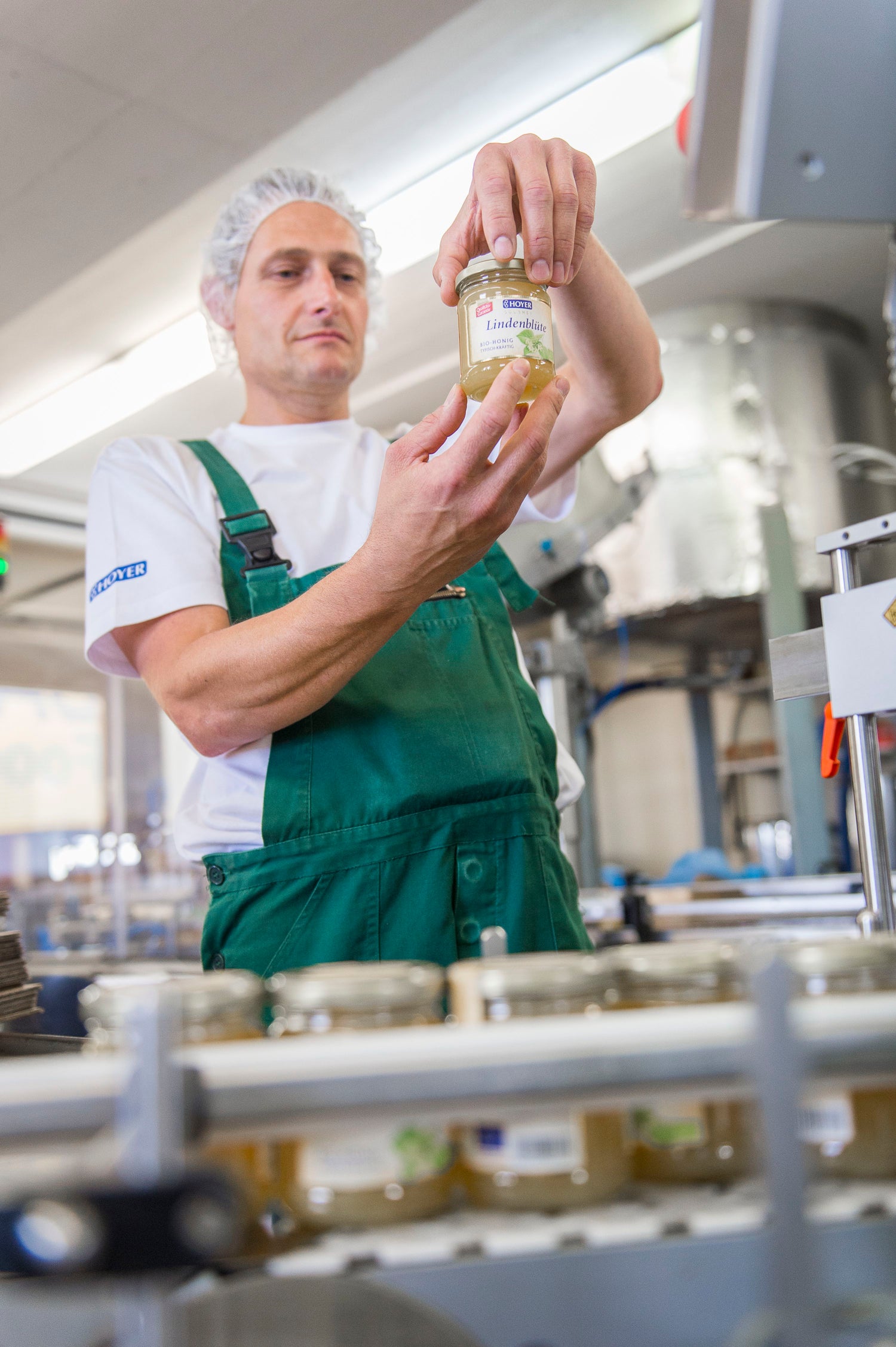
With the power of nature
HOYER
Founded in 1969 as a beekeeping business in Polling, Upper Bavaria, we can now look back on decades of experience from the production to the processing of high-quality beekeeping products.
HOYER stands for trust, enjoyment and reliability, and we strive to uphold and continuously develop these values.
Immerse yourself in the world of bees and enjoy honey and other beekeeping products of the best organic quality.
